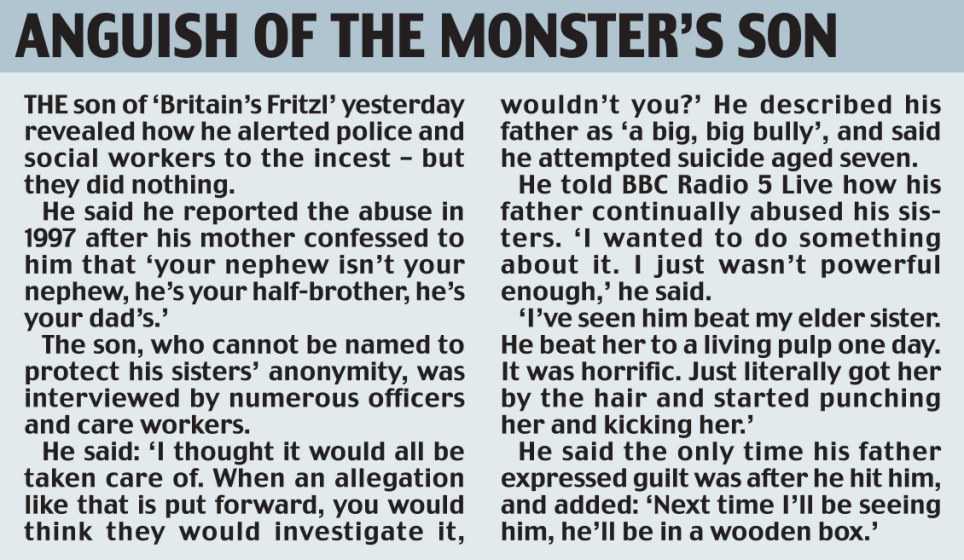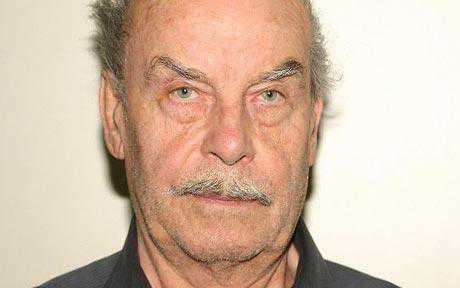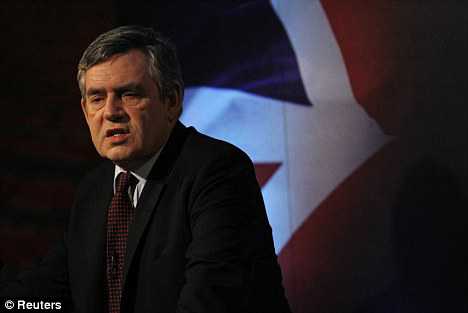Searchlight has analysed the spreadsheet, which was posted on the internet anonymously last month, and considers it almost certainly genuine. It covers a period from April 2007 to 26 November 2009 and shows payments to a large number of BNP officers, employees and suppliers. The first year’s transactions match those on an earlier leaked document.
During the first 11 months of 2009, the spreadsheet shows payments totalling £334,261.51 from the BNP’s Bank of Scotland account to Jim Dowson’s company Adlorries.com Ltd. Details of the services provided are not given, but the company runs the Belfast call centre, which is the BNP’s main base for fundraising and membership administration.
The BNP’s total income in 2008, the latest year for which accounts are available, was just under £1 million, so even allowing for some increase during a European election campaign year, the sums going to Adlorries.com still represent a sizable proportion of the party’s budget.
The BNP also paid £2,000 to Albion Logistical Solutions Ltd, £19,199 to UKPT Trust and £7,439 to the Pro Life Society. That adds up to £362,900 paid to Dowson’s companies in the first 11 months of 2009.
Dowson, who has several convictions and links to the loyalist murderer Michael Stone, first got involved with the BNP at the end of 2007 and transformed its fundraising capability. He also provided management training courses for BNP officers in spring 2008 at a villa he owns near Valencia in Spain. During 2008 his Midas Consultancy business received £15,712 from the party and £40,365 was paid to UKPT Trust for his fundraising services.
Adlorries.com hires the staff for the BNP’s Belfast bunker through employment agencies. After the leak of the BNP’s membership list last year, it emerged that no security measures were in place, despite the party’s promises after an earlier membership list leak in 2008, that all personal data would be held safely.
The company also owns the advertising lorry that the BNP calls its “truth truck”, contrary to statements in several fundraising appeals that the lorry was “bought and paid for”. Further evidence of this emerged from the BNP’s return of expenditure on its European election campaign, lodged at the Electoral Commission last month, which shows £15,000 paid to Adlorries.com for “advertising and publicity material”, presumably hire of what anti-fascists call the lie lorry.
Strangely, that £15,000, which the return says was paid on 30 April 2009, does not appear on the spreadsheet. Nor does the £148,500 supposedly paid to Albion Logistical Solutions Ltd on 23 April for arranging the printing of the BNP’s main European election leaflets.
It may be that these payments came out of a different BNP bank account. The party runs several accounts for specific purposes, such as for the fundraising Trafalgar Club, its Excalibur merchandising operation and “Freedom Promotions”. The party also holds one or more accounts in the name of British Heritage, into which many donations are paid, in particular those from supporters whom the party has persuaded to make regular donations by standing order, and donations made by credit or debit card.
Although the spreadsheet shows many transfers into the Bank of Scotland account from British Heritage and Freedom Promotions, it is possible that some payments to suppliers were made directly from those accounts.
Another possibility is that Adlorries.com paid for much of the BNP’s election literature and other costs, and the large sums paid to Dowson’s company include repayments of that “loan”. All bills during an election campaign have to be paid within 42 days of polling day, and in any case the commercial printers would undoubtedly have wanted payment before delivering the leaflets. If the BNP, which appears to have no overdraft facility or commercial loans, had not raised enough money to pay its bills, perhaps Dowson’s company helped out. Certainly £334,262, all paid between mid April and mid September 2009, would be a lot for running a call centre and the occasional hire of an A-frame lorry.
Many BNP members, including some on the party’s national advisory council, are unhappy at the extent of Dowson’s hold over the party. Perhaps to allay their concerns, or even some of his own, Nick Griffin, the party leader, sent his daughter Jennifer Matthys to Belfast to help run operations there.
Matthys, 23, joined Dowson as a director of Adlorries.com on 17 July 2009, although Dowson retains ownership of the company. On appointment Matthys stated her occupation to be “data processor”. Dowson’s sister-in-law Marion Thomas, wife of Dowson’s business partner Alex Thomas, became a director on the same day but left the company on 16 September. She is described as a “bookeeper” [sic].
Another way in which Dowson was able to strengthen his influence on the BNP was through the appointment of John Thompson to run the party’s “treasury department”. Thompson, described as a “professional chartered accountant” has long looked after the finances for Dowson’s various business and campaigning interests.
The leak of the spreadsheet may have cast suspicion on Thompson. Only a handful of trusted people apart from Thompson and any staff he employs could have had access to the document, probably Griffin himself, the party’s deputy leader Simon Darby and Philip Reddall, its treasurer.
The Excel spreadsheet appears originally to have been created by Kenny Smith, a former BNP administration officer who was one of the leaders of the rebellion in the winter of 2007/08. He was expelled from the party in December 2007 but his spreadsheet must have remained in use by other officers.
If the leak came out of Thompson’s office, that might explain why Darby is once again involved in running the party’s finances. Darby took over from Jenny Noble as BNP’s treasurer in spring 2009 but stepped down in October in favour of Reddall. Yet on 13 January 2010 he wrote, decrying the loss of communications at his home near Welshpool, “So here I find myself trying to run an election campaign, help manage the finances and be the press officer of a major political party without either a telephone line, broadband or even a dial-up connection”.
Why would Darby, who has no accounting qualification, be helping to manage the finances when the party has a “professional chartered accountant” to do the job?
The embarrassment over the leaked list comes at a time when the BNP is still under the spotlight of the Electoral Commission after it submitted accounts for 2008 which Griffin admitted were “inadequate”. The party’s inability to supply adequate records to its auditors meant that the accounts did not comply with the requirements of the Political Parties Elections and Referendums Act 2000 (PPERA).
A spokesperson for the Electoral Commission told Searchlight that the BNP’s auditors had provided the further information that the Commission had requested and the initial assessment is that there are “reasonable grounds to believe a breach of the PPERA may have occurred”. The Commission is now reviewing the information and this may lead to an “official investigation”.
Meanwhile Griffin continues frantically to try to persuade his members to upgrade to gold or life membership of the party. In his latest electronic newsletter, Griffin claims that the legal process undertaken by the Equality and Human Rights Commission to ensure the BNP complies with anti-discrimination legislation is in fact “criminal actions … designed to scupper our General Election plan” by starving the party of membership fees. The party agreed in court to put recruitment on hold pending adoption of a new constitution, which Griffin appears confident his members will agree at an Extraordinary General Meeting on 14 February.
However Griffin has now decided there is more to the supposed conspiracy against the BNP. “Recent developments have revealed a far more sinister long-term plan”, he writes. According to Griffin, the “old-gang Lib-Lab-Con” parties want to introduce proportional representation and state funding of political parties but to exclude the BNP. The recruitment freeze is designed to damage the BNP’s general election effort, limit the number of constitu-encies the party can contest and thereby ensure it receives a low percentage of the national vote. Then PR and state funding of parties would be introduced, but the BNP would receive nothing because of its low vote.
Seriously, that is the imaginative scenario Griffin describes, before referring to “low-life vermin [one of Griffin’s favourite words] that are trying to sabotage our party”, invoking “the heroes of the Somme, D-Day and the Falklands” and urging: “If we cannot welcome new members, then existing members MUST upgrade to fill the gap, otherwise their evil plan might succeed!”
The fact is that the membership freeze cannot have much effect on the BNP’s income. In 2008 the party took in membership fees amounting to £166,006. Much of this would be renewals, which are still allowed. New membership fees during the three to four month membership freeze would hardly top £30,000 and may be much less. The party could easily save that sum by shedding one or two of its large number of staff.
But when has the BNP ever allowed the truth to get in the way of a good fundraising pitch?. As Darby said when confronted with the evidence that the party had only spent £282,843 on its European election campaign rather than the over £500,000 it had claimed, the party needs to exaggerate “there’s a bit of hyperbole with politics”.
The Searchlight





